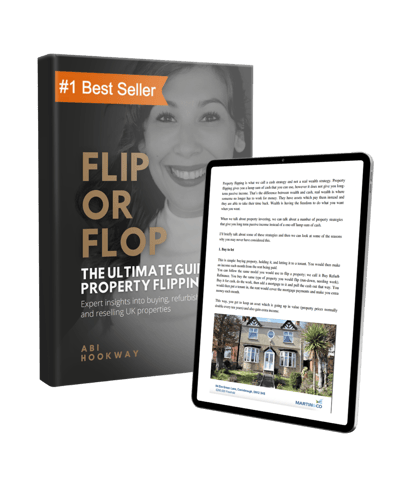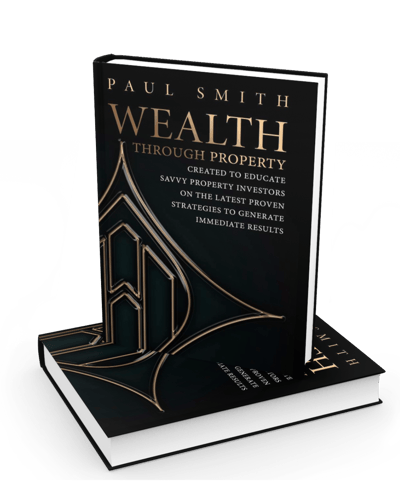Off-market properties can often sell quicker and with less hassle than those that are on the market.
In a high-demand market, using the market to buy a home can in certain circumstances creating frustrations, such as with expired and out-of-date listings.
Choosing off-market properties can take away some of the frustrations. But how do you buy an off-market property and what due diligence should you go through? This blog post explains.
What is off-market property?
An off-market property, also referred to as a discreet property listing, is where a seller does not want their property name or address to be visible on portals (such as Rightmove and Zoopla), on social media, through digital advertising, in windows of high-street agencies, in print or with a ‘for sale’ board.
Buying off-market increases your odds of finding the perfect home because it removes the element of competition, every home you see will be an exclusive or have limited number of interested parties. You’ll have access to properties that other buyers aren’t able to see.
Ultimately, buying off-market means that you’re more likely to find a home at a price you can afford. If the seller decides to sell, you settle on a price by coming to a natural agreement.
In London, one in five homes are now sold outside of traditional channels. There are advantages to selling off-market and it is an increasingly popular choice for people to try to sell via this method before listing on the open market.
When you buy off-market, the level off stress can be significantly reduced. Unlike the pressure of the open market, off-market sales are low-key and hassle-free.
What are the types of off-market property?
There are three key types of off-market property.
Direct Approach: When spotting an ideal property that meets your / your client’s requirements and contacting the owners directly. Alternatively, the owner may directly seek out the interested party.
Discretion: Where a seller has appointed an agent, but they want the sale to be confidential. It’s not uncommon in these situations to have to sign confidentiality contracts where only one client is informed.
Advance: Then there are properties that are going to be coming on later in the year. Often vendors don’t want their houses to be openly marketed when the exterior is not looking its best.
How can you find off-market properties?
1. Drive around and look for places you like: Perhaps the easiest way to access off-market properties is to visit a chosen area and look around. Write down the addresses of the homes that catch your eye and you can look at them more closely.
a. You might want to talk to friends and family. Frequently homeowners will talk to their neighbours, and they may have heard someone say something like “I’d sell my home if I was offered the right price, but I don’t really want to put it on the market.”
b. Neighbours know if someone was openly talking about wanting to move to a different neighbourhood.
2. Approach the owner and ask if they want to sell: If you want to gauge a homeowner’s interest in selling their home you can speak to the owner and see if they would be interested.
a. Send the owner a letter
b. Alternatively, speak generally about the area – they may get you a referral.
3. Track down the owner of a vacant house: If you’re interested in a house that is clearly unoccupied, search deeds and property tax records to find the owner. It may take a little extra effort, but owners of abandoned homes typically are more willing to sell the property.
a. When you find the owner, send them a polite letter and tell them that you’re interested in buying the property.
b. Find out how long the house has been unoccupied houses that have been vacant for a long time may be more costly to renovate and repair.
4. Browse actions and public records: Bank-owned properties and other properties up for auction are still considered ‘off-market’ in the sense that they aren’t listed on the major real estate listing services. These properties may be distressed, so careful research is needed before a bid is submitted. Find out how to make your first auction deal here.
5. Get a real estate agent to help you: Many real estate agents know about properties that aren’t listed for one reason or another. They may have been previously that aren’t listed and then taken off the market.
a. Estate agents can assist with networking, helping the client to find the property that they want. A real estate agent is familiar with the neighbourhood and know owners that are likely to bite an offer.
6. Networking: If you’re looking to invest in real estate, networking is a crucial way to network with other people in the industry to find off-market property to buy.
a. Touchstone Education have several networking events in prime locations every month.
b. Builders and contractors also often have inside information on houses and other property for sale. For example, you may be able to get a great deal on a custom home that the builder didn’t have money to finish.
How do you make an offer on an off-market property?
- Get formal appraisals: A professional appraisal can give you an accurate look at the value of the home, as well as any work that you may need to have done. You and the seller may each want to have an independent appraisal done.
- Talk to a real estate agent: A real estate agent will have more information about comparable homes in an area that have recently sold or are currently on the market. The price of these homes can tell you more about the value of an off-market property.
- Draw a letter of intent: This is a more official offer that underlays basic terms and condition. Though not a legally binding document, it shows both the buyer and seller are on the same page.
- Get a purchase and sale form: Once both parties have agreed in principle on the sale, purchase and sale agreement can be made.
How do you close the sale of an off-market property?
To then close the deal, find a mortgage broker, deposit the money, obtain insurance, conduct due diligence via inspection and renegotiate before signing the closing paperwork.
What do you need to consider when buying an off-market property?
Around 10% of property transactions is now made off-market in the UK, according to County Homesearch.
Ultimately, there are things to consider before purchasing an off-market property:
Financial position: Most people buying off-market will need to be in a strong financial position. This puts you in a more credible position, and makes you appear a more proceedable and serious buyer.
Timing: If you are in a rush to move, it may not be the best option. This does depend on the vendor and whether they are in a position to find another property.
Lack of information: You may not always have the same level of information on a property when buying off-market. This stresses the need for essential due diligence.
Find out more information
To find out more information about how to make off-market deals and other ways you can generate income through property, try the UK’s leading property investment course, Wealth Through Property.
This 2-day property extravaganza features specialist mentors and trainers, and a wealth of real-life student experience on the property strategies that are working.
Alternatively, you can find out how to make effective auction deals, by taking part in the ‘My First Auction Deal’ course.
For more information call us on 01302 897131 or email us at office@touchstoneeducation.co.uk.
%20(1).png?width=600&height=215&name=gold%202%20(no%20shadow)%20(1).png)









